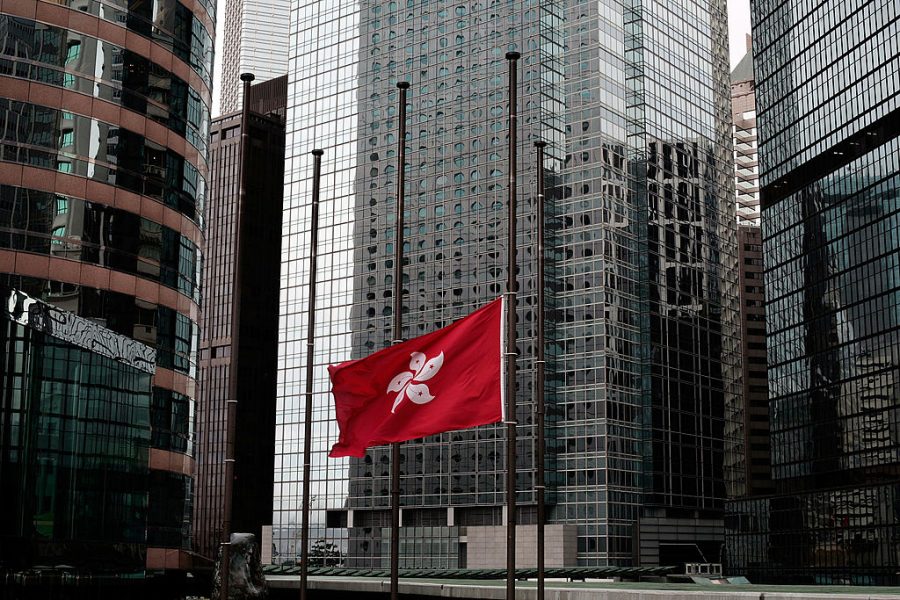

01 November, 2021 | | 0 Comments
https://www.facebook.com/kraftingcareers/videos/261829522430316
Aritro Mukherjee has shared his story of application, experiences and learning journey to Hong Kong University of Science and Technology, HKUST ( ranked seventh in Asia by QS and third by The Times), by himself.†
Aritro Mukherjee is a final year student, studying Bsc Quantitative Finance in HKUST. He aspires for a career in Banking and Finance after his graduation. An ardent supporter of Manchester United, his passion in football lead him to compete in state level football tournaments. He also loves watching movies and playing guitar.
†Q&A
1) When did you decide that you wanted to study abroad?†
Ans: I decided to go abroad in my 11th Grade. I do believe that this is a little late and most students decide sooner but I ensure I have enough time to come up with decent applications for my college. I wanted to study abroad as I was changing what I was studying. I had Physics, Chemistry and Math in School but I wanted to study Finance. HK had good finance courses plus is the financial centre of Asia
†
2) What did you consider while shortlisting the Universities you wanted to apply to?†
Ans: I looked for 3 important things: -
8 ) Since you had changed fields, how did it affect your application and what steps you took to make the change possible?†
Ans: I had science in my High School but I was always interested in Finance and wanted to make a career in finance. Thatís part of the reason I decided to study in Hong Kong and switched to finance. At first however I was just enrolled in the general business management program. I decided to later shift to quantitative finance after my first year in the university. To do that I had to keep 3 main things in mind. I needed good grades, I had to show my professors that I was interested in finance and also build my resume and personal statements such that it shows my interest in quantitative finance and why I would be an asset to the course.
3) Some countries have centralized portal for admissions? Was it similar for HK as well?†
Ans: I applied directly to my universities through the university websites.
4) What did you need to keep in hand before starting the application process? (Including standardised tests like IELTS/TOEFL/GRE - preferably give these tests before applying, LoR and who to take the LoR from)†
Ans: Since I didnít really have any counsellor, I did not have much prior information about the applications. I basically kept finding the required documents while filling up my application. But I would advise to give TOEFL/IELTS to mee University English requirements and have your academic transcripts and bank statements handy.
Also learnt about organization and time management as I kept getting documents systematically as I filled up my application.
†
5) What is the general framework of the application?†
Ans: It was pretty straightforward.†
The app requirements are:
†
6) What is the difference between a SoP and a resume? (What you should and shouldn't include in both of them)†
Ans: Resume is basically a snapshot of your life. Should have all your important achievements, academic information, extra curricular, hobbies etc. Plus make sure Resume is only 1 page.†
SoP is basically your story and most importantly why you want to join so and so college and pursue so and so major. It should not only state what you have already stated in your resume but also provide a story behind whatever achievements and interests you have.
7) Can you take us through the experience of and GD?† What was the duration of the interview?
Ans: Yes, I had a video interview for HKUST and for HKU I had a group discussion. Interviews are also an important part of the application and thus we should take it very seriously. Thereís no way to predict what questions will be asked but I have always used the STAR method to answer questions and this method is very helpful. First is the situation, followed by the task that you had and the action you took. Finally, you need to end with the result and any takeaway from the experience. For eg. If you were asked explain a situation when you faced confrontation by a teammate. I would answer it as follows:-
The situation is that when I was doing a project my teammate and I disagreed on our work and had a confrontation. The task was to complete the project in time and try and get good grades. The action I took to resolve the confrontation was communication and understanding. I realized its best not to argue and rather come to a solution so that we donít harm our grades. We did that by listing the pros and cons of our ideas and trying to meet in the middle ground. The result and takeaway was that it is always better to communicate and solve conflicts rather than trying to prove your point aggressively.
10) What happens after you've submitted your application and what do you have to do once you receive an offer?
Ans: After the you submit the online application you will be called for an interview or a group discussion depending on what your university has to offer. Then after assessing your application and the interview you receive a conditional offer which becomes a firm offer after you meet the final exam marks requirement as specified by the uni.
11)What is the condition? What is the acceptable range of marks from Indian boards to get admission to your field?
After your firm offer the university will contact you with further steps which usually involve visa applications. For HKUST, for Business the conditional marks were 90% for CBSE and ICSE and engineering was 85% for CBSE and ICSE. I think it will be similar for HKU as well.
Recent Posts
Copyright © 2020. All Right Reserved.